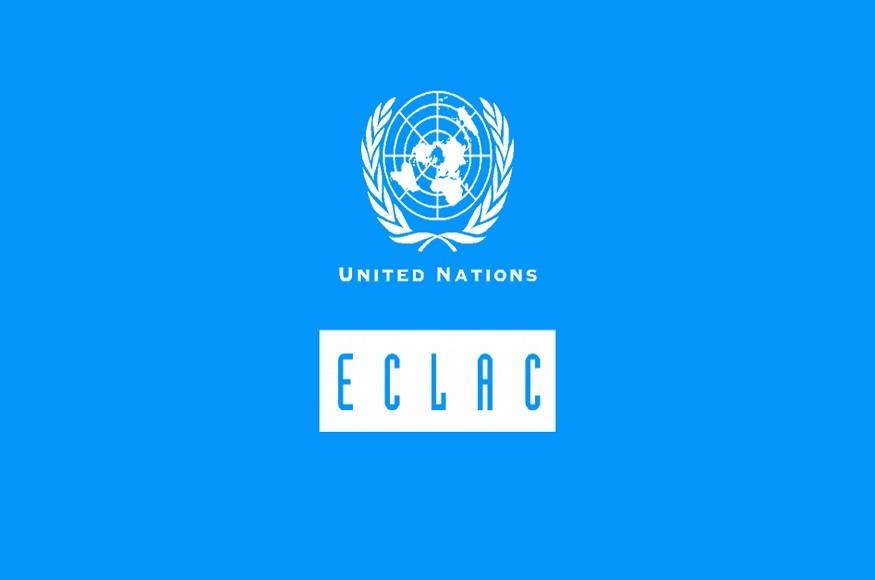- CatalogTop
Full catalog list - Food & BeveragePopular
Popular packed food and beverages
- Beauty & Self Care
Beauty and personal self-care products - Home & Garden
Home and garden supplies and accessories - Board Games
Most popular board games from Latin America - BrandsAll brands
Full list of all brands in the store. Browse all brands - IndustriesNew!
Filter products by desired business category - Services
See all services - See All Products
See full list of all products - Companies
Companies list
Economic Comission for Latin America and the Caribbean (ECLAC)

The Economic Commission for Latin America and the Caribbean (ECLAC), or Comisión Económica para América Latina y el Caribe (CEPAL) in Spanish, is one of the five regional commissions of the United Nations, together with the Economic and Social Commission for Asia and the Pacific (ESCAP), the Economic and Social Commission for Western Asia (ESCWA), the Economic Commission for Africa (ECA) and the Economic Commission for Europe (ECE).
The ECLAC was founded in 1948, established by the Economic and Social Council resolution, with the purpose of contributing to the economic development of Latin America, coordinating actions directed towards this end, and reinforcing economic ties among countries and other nations of the world. Later, in 1984, the Caribbean was included in the objectives of the organism.
All 33 countries of Latin America and the Caribbean are members to the ECLAC, together with several nations in North America, Europe and Asia, that keep historical, economic and cultural connections with the region. In total, the member States are 46, and 14 non-independent territories in the Caribbean are Associate Members of the Commission.
Among its mandates and missions, the most important are the concerns over the economic and social development of the region by the realization of studies, investigations and other support activities apart from organizing conferences and reunions of intergovernmental and expert groups. In addition, all the activities are coordinated with those from the main departments and offices of the headquarters of the United Nations, along with other specialized organisms and the intergovernmental organizations, in order to avoid duplication and reach the complementarity in the exchange of information.
Cycle Planning
The Economic Commission for Latin America and the Caribbean (ECLAC) bases its procedures and practices in accordance to programme planning, programme aspects of the budget, monitoring of implementation and methods of evaluation, on the Commission's rules of procedure and on detailed regulations.
- Strategy and legal framework
The Cycle Plan for the ECLAC uses the biennial system, specified in the strategic framework. In the document, the member States determine the programme structure and priorities for each period and establish the legislative basis that underpin the institution's mandate. The strategic framework is the first step in the programme planning cycle and is used as the basis for the planning, budgeting, monitoring and evaluation of the biennial programmes.
- Programme and budgeting
ECLAC's biennial work programme is usually prepared in parallel with the strategic framework, with a more detailed content. The project includes a list of products and activities related to the expected accomplishments for the biennium. The programme's draft is submitted to the State members of the Commission for consideration and approval.
After this, both the strategic framework and the work programme serve as the basis for the preparation of the proposed programme budget for the concerned biennium. This preparation, which begins more than a year before the start of the implementation of the programme, consists of allocating human and financial resources to the various components, the amount of which is defined through an intergovernmental negotiation process that takes place in the General Assembly and which is expressed in an indicative figure. This amount becomes the budget ceiling for ECLAC, to which the entire programme must conform for its implementation.
- Accountability and evaluation
The system of accountability of ECLAC, which contributes to the politics of organizational transparency, is composed by a set of instruments and tools that collect the results of the control and monitoring activities, audit reports, performance of the organization and assessments of various kinds that are presented to the member States of ECLAC and the United Nations as a whole, and are disseminated publicly through various channels to the general public.
In addition to a multiplicity of specific financial and technical reports on projects and programmes, the Report on activities of the ECLAC system, as well as the Report on Technical Cooperation Activities carried out by the ECLAC system, are presented at the session of the Commission. These reports constitute the two most relevant and comprehensive performance accountability instruments that ECLAC submits for review by its regional governing body.
Being also a Regional Commission within the United Nations Secretariat, ECLAC is responsible for the preparation of specific chapters of the reports submitted by the General Secretary to the General Assembly on programme and budget performance for each biennium, including shared sections relating to the regular programme of technical cooperation and the Development Account, for example.
Contact
3477 Dag Hammarskjöld Av
Vitacura, Santiago de Chile
Tel.: (56-2) 2471 2000 • 2210 2000
References
© 2017 - 2024, Directoro.com, or its affiliates. Trademarks are the property of their respective owners.

